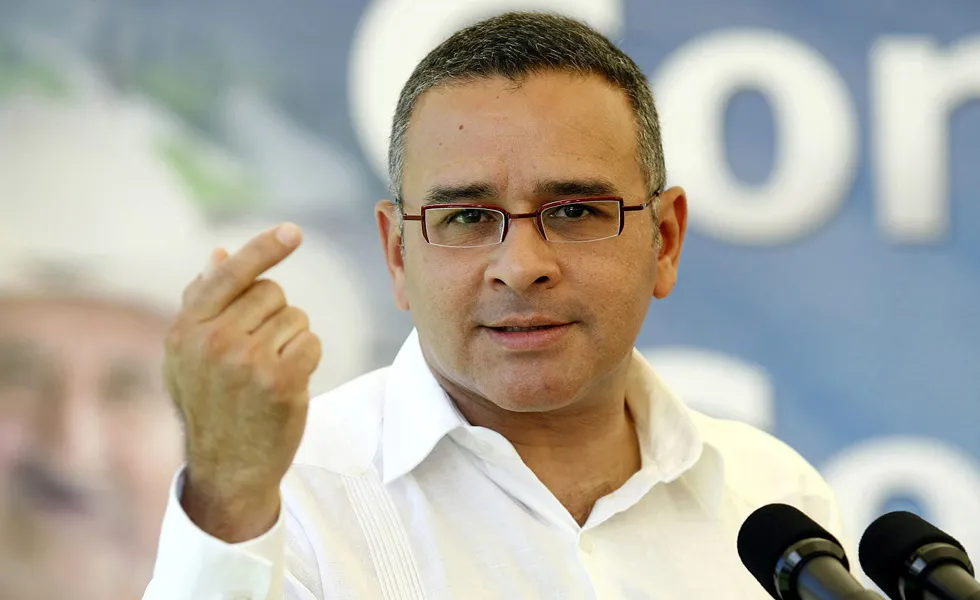Unraveling the Controversy: Mauricio Funes in the Spotlight Again
Mauricio Funes, the former President of El Salvador, has once again found himself at the center of controversy. Serving from 2009 to 2014, Funes transitioned from a successful career in journalism to the highest political office in the country. His presidency was marked by significant challenges, allegations of corruption, and a contentious legacy that continues to provoke debate among Salvadorans.
Funes is currently accused of embezzling an estimated $351 million from state funds during his time in office. These allegations have led to a tumultuous political landscape in El Salvador, as the public grapples with the implications of his actions. In 2016, facing mounting pressure from investigations, Funes fled to Nicaragua to evade prosecution. This decision has not only impacted his personal life but has also raised questions about governance and accountability in El Salvador.
In 2021, Funes was sentenced to 14 years in prison for negotiating with gangs during his administration, further complicating his already tarnished reputation. This sentence highlights the serious nature of the corruption charges against him, as well as the broader issues of gang violence that have plagued El Salvador for decades. Recent reports indicate that Funes’ health has deteriorated while living in exile, adding a personal dimension to the ongoing saga of his political career.
Funes was a prominent member of the FMLN, a leftist political party that played a significant role in El Salvador’s civil conflict. His rise to power was seen as a shift towards a more moderate leftist leadership, drawing comparisons to leaders like Barack Obama and Luiz Inácio Lula da Silva. However, his administration faced severe criticism for its handling of gang violence and corruption, which significantly impacted public trust in government institutions.
The emergence of audio recordings revealing conspiracies involving Funes and political operatives during his presidency has only intensified the scrutiny surrounding him. These recordings have sparked outrage and raised questions about the integrity of his administration. Critics argue that such revelations further illustrate the deep-seated issues of corruption that have plagued El Salvador’s political landscape for years.
Funes’ presidency was characterized by populist tendencies, often announcing projects based on public support rather than feasibility studies. This approach led to a series of initiatives that, while popular, were not always sustainable or effective. As a result, his government faced significant challenges from both left and right political factions, complicating governance and decision-making processes.
The Salvadoran media has been particularly critical of Funes, often highlighting divisions within his government and the FMLN party. This scrutiny reflects a broader concern among citizens about the direction of their country and the effectiveness of its leaders. Funes’ legacy remains contentious, with ongoing debates about his impact on corruption, governance, and social issues in El Salvador.
In addition to his political controversies, Funes has faced personal tragedies, including the death of one of his children in Paris in 2007. This loss has added a layer of complexity to his public persona, as he navigates the challenges of exile and the consequences of his political decisions. Funes was previously married to Brazilian Wanda Pignato, and together they have five children.
Despite his attempts to maintain a close relationship with the United States during his presidency, Funes was later blacklisted by the U.S. State Department. This shift underscores the complicated nature of international relations for Salvadoran leaders, particularly those associated with leftist politics. The repercussions of these diplomatic tensions continue to affect El Salvador’s standing in the global community.
In conclusion, Mauricio Funes remains a polarizing figure in El Salvador’s political landscape. His presidency, marked by both ambitious initiatives and serious allegations of corruption, has left an indelible mark on the country’s history. As he navigates the challenges of exile and health concerns, the ongoing discourse surrounding his legacy will likely continue to shape the future of El Salvador’s governance and public trust in its leaders. The unfolding narrative of Funes serves as a reminder of the complexities inherent in political leadership and the far-reaching consequences of corruption and mismanagement.






Leave a Comment